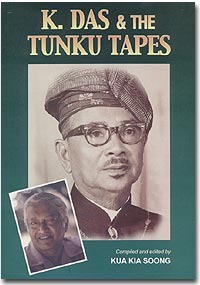Give credit where it is due
Give credit where it is due
BY TERENCE FERNANDEZ
DON’T get to watch much television but my friend Leon did not allow me to have my lunch in peace when we met last Thursday, as he was going on and on about this movie he caught on HBO, Flash of Genius. I chanced upon it on Saturday and decided to see what the fuss was all about. Halfway through the film, which stars Greg Kinnear, I was thanking Leon. It is the true story of Robert William Kearns, or Bob Kearns, the inventor who came up with the intermittent windshield wiper. He had tried to sell his idea to Ford, Chrysler and General Motors but all three did not show any interest, although Ford had asked him to prepare a cost analysis.
Despite the rejection, these companies proceeded to install the intermittent windshield wiper which Kearns had patented. It was at the launch of the latest Ford Mustang that Kearns discovered that his idea had been stolen as the intermittent windshield wiper – which Kearns invented based on the blinking action of the human eye – became the car’s main selling point.
The invention was his “flash of genius”; patent law terminology meaning that an idea for an invention could come to someone out of nowhere irrespective of his skills, experience or knowledge over the matter.
Between 1978 and 1990, Kearns fought what is arguably the most famous patent infringement case in US history as he sued Ford. His fight for justice consumed him so much that his marriage ended in divorce. The film almost accurately depicted Kearns’s story, where he even represented himself as lawyers were reluctant to take on a powerful corporation and an American institution.
During the course of the trial, he was visited by a Ford employee who asked him to settle the case for US$30 million with no admission of liability by Ford. He rejected the offer saying what was more important was the recognition that he was the inventor of the mechanism. After 12 years in court, the jury found in favour of Kearns and awarded him US$10.1 million. Another suit he filed against Chrysler brought US$30 million.
Today, almost all cars in the world feature Kearns’s intermittent wipers.
In retrospect, I wondered how many of us would have gone all the way as Kearns did – fighting for one’s principles no matter what the cost. Perhaps in Kearns’s world, he was confident enough as he had the solid backing of the US Constitution and an infallible legal system.
How many of us would have walked away from US$30 million? Life changing money which can take care of several generations if managed well?
We root for people like Kearns because everyone wants to see the underdog win. Back home we have come across many Bob Kearns. People, who fought for their principles, suffered for it and were eventually vindicated. Like the retirees who spend their days writing letters and making the long journey to Putrajaya to get their pensions and succeeding when they are near death’s door.
Or the politician who went to jail for speaking up for a sexually abused girl and is today heading a state government?
The activist who faced jail for exposing abuse of detainees at a detention centre for foreigners only to have the government withdraw its case against her?
But it also brings to mind that Kearns’s case is one of “lembu punya susu, sapi punya nama”. Not an uncommon issue. How many of us take credit for other people’s work?
The department head who gets to gloat about his KPIs and receives a prestigious award at a five-star function when it was his staff who did all the work while he was at the golf course. Or in reverse, the department No 3 who is made to face the music because someone higher up fouled up.
Look at the structures of some departments – both private and public – with all their deputy heads, assistant directors, principal assistant directors and vice-presidents gives one the impression that the top wants the title of No 1 but not the responsibilities and the work that come with it.
It is sad when giving due credit is sometimes akin to donating a kidney. Perhaps it is politically expedient for some to deny the contributions of some because it helps to maintain the natural order of things and you wouldn’t want to disrupt a sensitive eco-system.
Having such an attitude is not only unfair to those wronged and uncredited, it is also disruptive to progress when people are not recognised for their skills and contributions.
Intellectual theft is not only limited to property and ideas. It is a crime when it also usurps one’s passion and dilutes one’s contribution to society. So yes, while there are many Bob Kearns in our backyard, how many among the likes of the Ford Motor Company that he had to battle are out there?
THE firms mentioned in this article strictly refer to the ones exclusive to the Bob Kearns case and in no way refer to local affiliates.
Feedback: terence@thesundaily.com
Posted using BlogPress from MXV's iPhone
BY TERENCE FERNANDEZ
DON’T get to watch much television but my friend Leon did not allow me to have my lunch in peace when we met last Thursday, as he was going on and on about this movie he caught on HBO, Flash of Genius. I chanced upon it on Saturday and decided to see what the fuss was all about. Halfway through the film, which stars Greg Kinnear, I was thanking Leon. It is the true story of Robert William Kearns, or Bob Kearns, the inventor who came up with the intermittent windshield wiper. He had tried to sell his idea to Ford, Chrysler and General Motors but all three did not show any interest, although Ford had asked him to prepare a cost analysis.
Despite the rejection, these companies proceeded to install the intermittent windshield wiper which Kearns had patented. It was at the launch of the latest Ford Mustang that Kearns discovered that his idea had been stolen as the intermittent windshield wiper – which Kearns invented based on the blinking action of the human eye – became the car’s main selling point.
The invention was his “flash of genius”; patent law terminology meaning that an idea for an invention could come to someone out of nowhere irrespective of his skills, experience or knowledge over the matter.
Between 1978 and 1990, Kearns fought what is arguably the most famous patent infringement case in US history as he sued Ford. His fight for justice consumed him so much that his marriage ended in divorce. The film almost accurately depicted Kearns’s story, where he even represented himself as lawyers were reluctant to take on a powerful corporation and an American institution.
During the course of the trial, he was visited by a Ford employee who asked him to settle the case for US$30 million with no admission of liability by Ford. He rejected the offer saying what was more important was the recognition that he was the inventor of the mechanism. After 12 years in court, the jury found in favour of Kearns and awarded him US$10.1 million. Another suit he filed against Chrysler brought US$30 million.
Today, almost all cars in the world feature Kearns’s intermittent wipers.
In retrospect, I wondered how many of us would have gone all the way as Kearns did – fighting for one’s principles no matter what the cost. Perhaps in Kearns’s world, he was confident enough as he had the solid backing of the US Constitution and an infallible legal system.
How many of us would have walked away from US$30 million? Life changing money which can take care of several generations if managed well?
We root for people like Kearns because everyone wants to see the underdog win. Back home we have come across many Bob Kearns. People, who fought for their principles, suffered for it and were eventually vindicated. Like the retirees who spend their days writing letters and making the long journey to Putrajaya to get their pensions and succeeding when they are near death’s door.
Or the politician who went to jail for speaking up for a sexually abused girl and is today heading a state government?
The activist who faced jail for exposing abuse of detainees at a detention centre for foreigners only to have the government withdraw its case against her?
But it also brings to mind that Kearns’s case is one of “lembu punya susu, sapi punya nama”. Not an uncommon issue. How many of us take credit for other people’s work?
The department head who gets to gloat about his KPIs and receives a prestigious award at a five-star function when it was his staff who did all the work while he was at the golf course. Or in reverse, the department No 3 who is made to face the music because someone higher up fouled up.
Look at the structures of some departments – both private and public – with all their deputy heads, assistant directors, principal assistant directors and vice-presidents gives one the impression that the top wants the title of No 1 but not the responsibilities and the work that come with it.
It is sad when giving due credit is sometimes akin to donating a kidney. Perhaps it is politically expedient for some to deny the contributions of some because it helps to maintain the natural order of things and you wouldn’t want to disrupt a sensitive eco-system.
Having such an attitude is not only unfair to those wronged and uncredited, it is also disruptive to progress when people are not recognised for their skills and contributions.
Intellectual theft is not only limited to property and ideas. It is a crime when it also usurps one’s passion and dilutes one’s contribution to society. So yes, while there are many Bob Kearns in our backyard, how many among the likes of the Ford Motor Company that he had to battle are out there?
THE firms mentioned in this article strictly refer to the ones exclusive to the Bob Kearns case and in no way refer to local affiliates.
Feedback: terence@thesundaily.com
Posted using BlogPress from MXV's iPhone


Comments